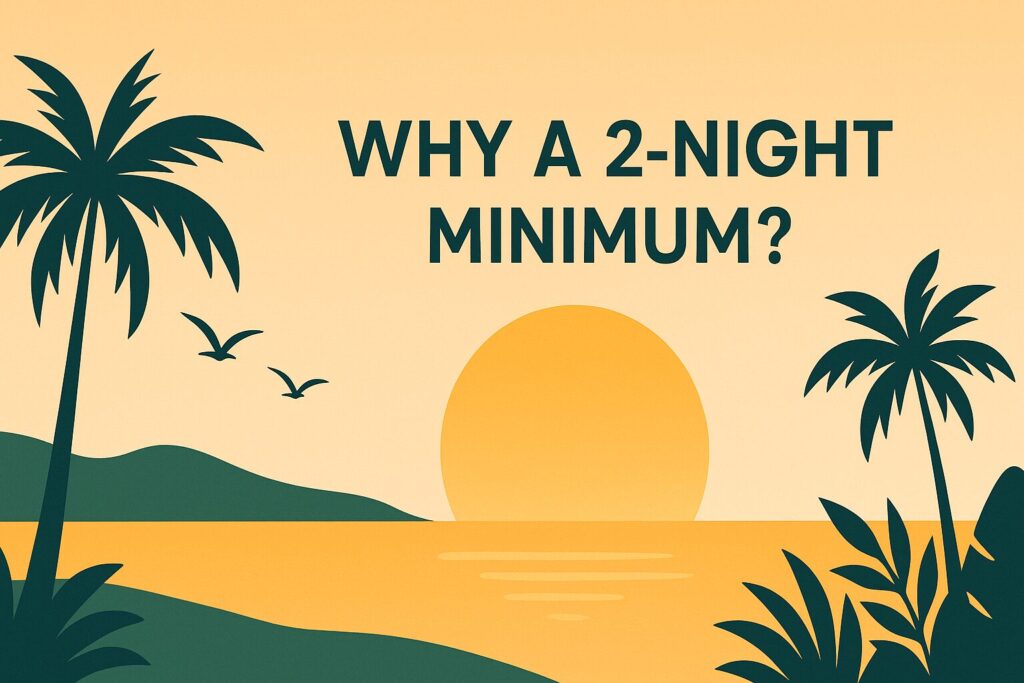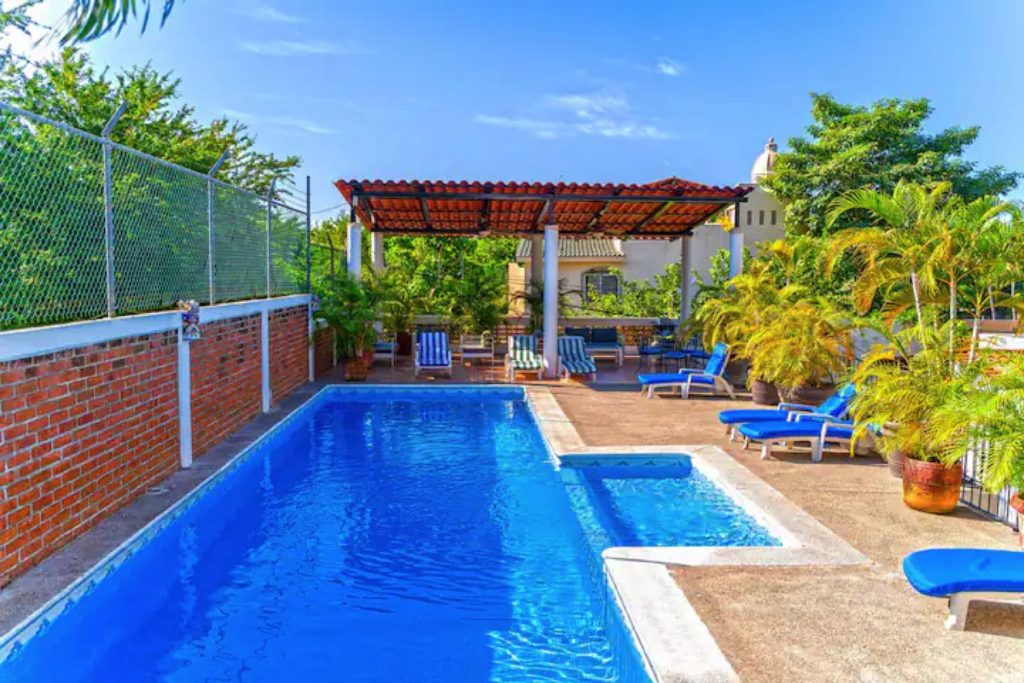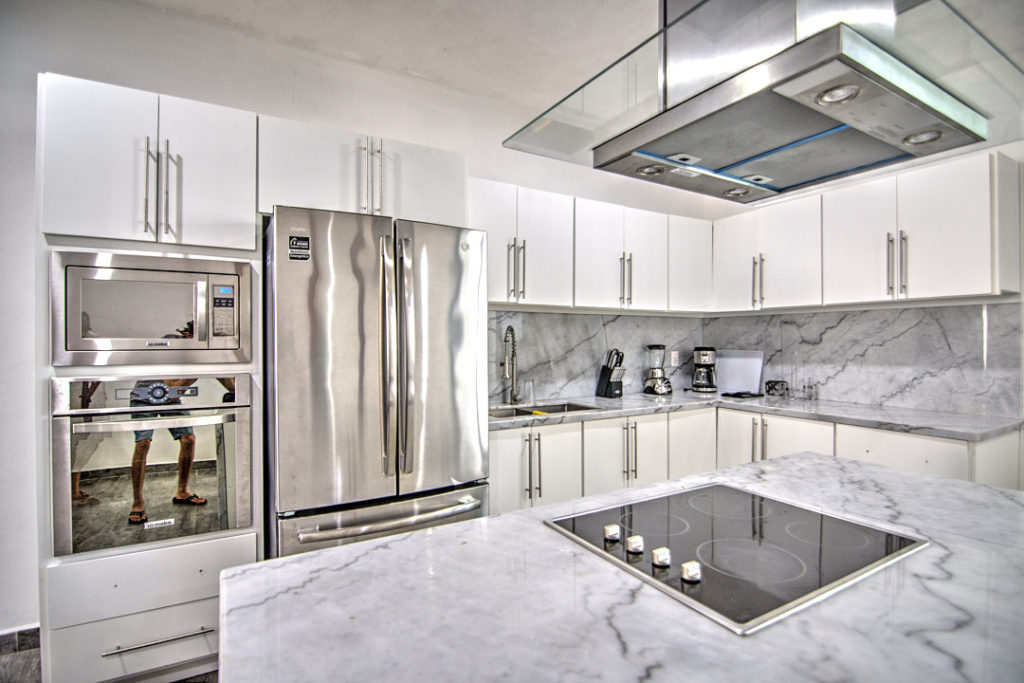When it comes to setting s minimum night strategy for your vacation rental, property owners often wonder what the ideal number is. Wouldn’t one-night bookings bring in more volume? Or shouldn’t we only allow 3-night stays to avoid short-stay issues?
After years of managing vacation rentals in a competitive market, we’ve found that a 2-night minimum stay offers the best balance between profitability, guest quality, and operational efficiency. Here’s why we strongly recommend it:
We Don’t Recommend 1-Night Reservations
1. The Value Per Booking Is Too Low: Even with a cleaning fee, one-night bookings tend to bring in low total revenue. After platform commissions and taxes, what’s left is often not worth the effort involved. These short stays rarely move the needle financially, especially when compared to a weekend or 3–4 night booking.
2. Higher Risk of Parties or Problem Guests: One-night stays, especially on weekends, are more likely to attract guests looking to host events, which increases the risk of property damage, noise complaints, or poor guest behavior. Airbnb itself marks one-night weekend bookings as high-risk and limits when they can be booked.
3. Operational Strain & Prep Time Gaps: Each reservation requires a lot of cleaning, communication, and admin work. Plus, for larger homes, we often need to block a night before and after to allow enough time for cleaning—meaning a one-night stay can end up occupying three calendar nights.
4. One-Night Stays Can Block Longer, More Valuable Reservations: For example, a single-night Saturday booking prevents us from accepting a Friday–Sunday stay. These longer bookings are more profitable, involve less risk, and are far more common among well-behaved guests.
3-Night Minimum Can Hurt Performance
1. You’ll Miss Out on Weekend Travelers: Most guests searching for a vacation rental are looking for a 2-night weekend escape. That’s a major portion of the market you’re unintentionally excluding.
2. Lower Occupancy in the Long Run: While it may seem like a 3-night booking is better, in practice, it limits flexibility. You may go several nights without a booking simply because your minimum stay was too long for the majority of travelers.
3. Flexibility Helps You Stay Competitive: In a market where guests are comparing dozens of listings, you don’t want to lose visibility due to inflexible policies. A 2-night minimum ensures your listing shows up in more searches—especially for last-minute bookings.
Why 2 Nights Is the Sweet Spot
- Balances risk and revenue
- Protects your calendar from inefficient gaps
- Supports smooth operations, especially for properties with prep time
- Keeps your listing competitive in search results
- Fits the majority of guest travel patterns, especially for weekend stays
- Encourages better reviews, since guests have more time to enjoy the home (when compared to 1-night reservations)
In summary:
The 2-night minimum isn’t just a compromise—it’s a smart strategy. It helps protect your property, optimize your calendar, and maximize revenue while keeping your listing visible and appealing to the right guests.




